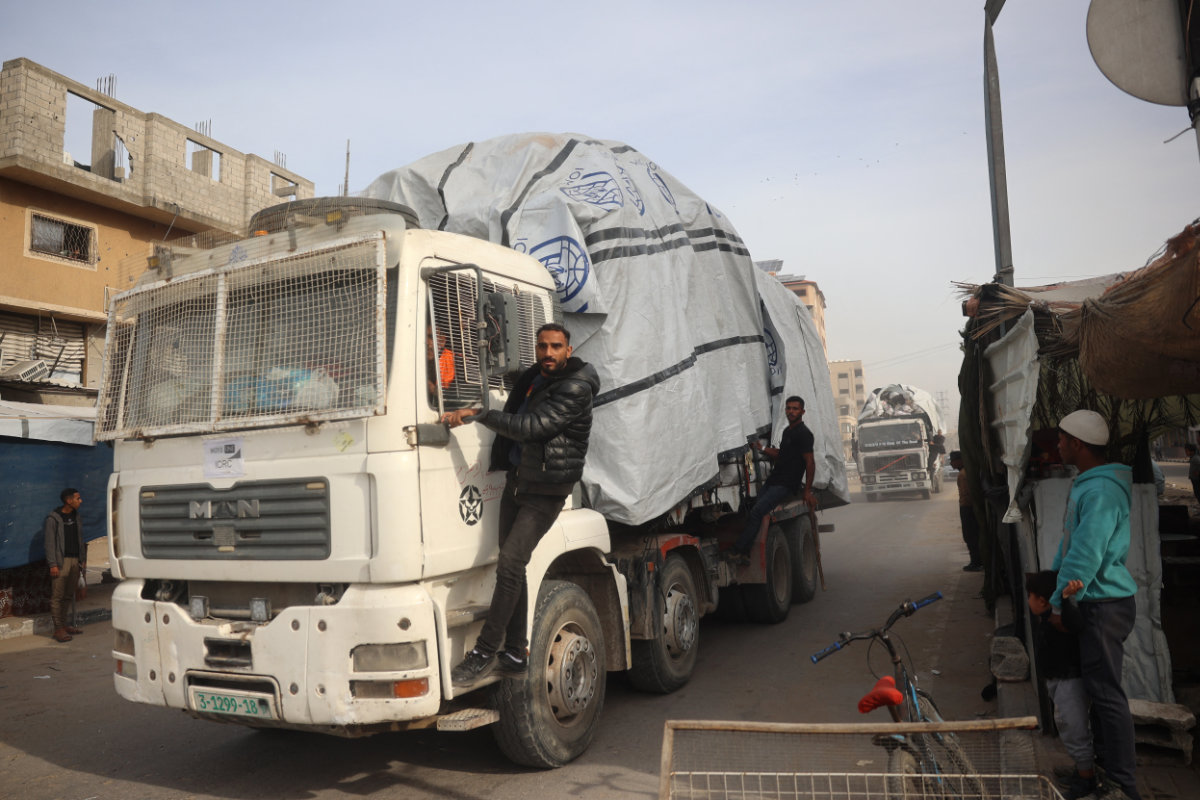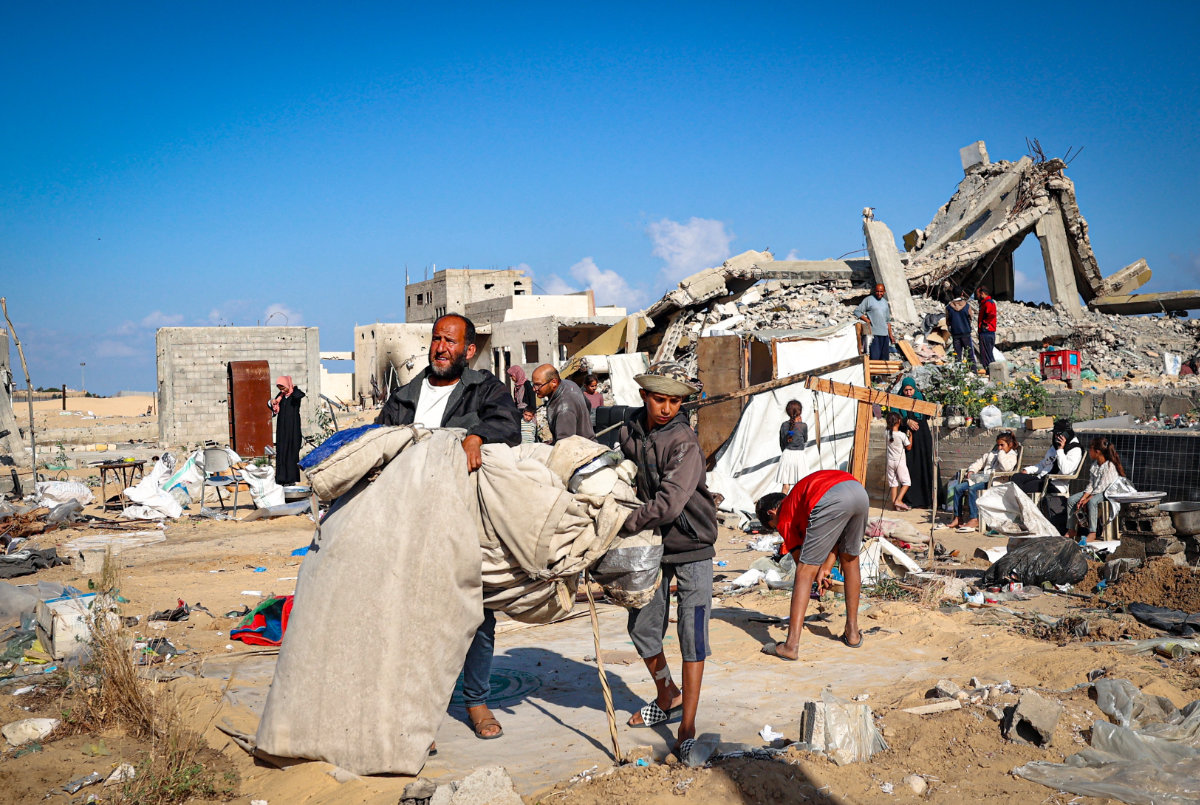BEIRUT: Israeli air attacks battered Beirut’s southern suburbs overnight and early on Sunday, the most intense bombardment of the Lebanese capital since Israel sharply escalated its campaign against Iran-backed group Hezbollah last month.
During the night, the blasts sent booms across Beirut and sparked flashes of red and white for nearly 30 minutes visible from several kilometers away.
It was the single biggest attack of Israel’s assault on Beirut so far, witnesses and military analysts on local TV channels said.
On Sunday a grey haze hung over the city and rubble was strewn across streets in the southern suburbs, while smoke columns rose over the area.
“Last night was the most violence of all the previous nights. Buildings were shaking around us and at first I thought it was an earthquake. There were dozens of strikes — we couldn’t count them all — and the sounds were deafening,” said Hanan Abdullah, a resident of the Burj Al-Barajneh area in Beirut’s southern suburbs.
Videos posted on social media, which Reuters could not immediately verify, showed fresh damage to the highway that runs from Beirut airport through its southern suburbs into downtown.
Israel said its air force had “conducted a series of targeted strikes on a number of weapons storage facilities and terrorist infrastructure sites belonging to the Hezbollah terrorist organization in the area of Beirut.”
Lebanese authorities did not immediately say what the missiles had hit or what damage they caused.
This weekend’s intense bombardment came just ahead of the anniversary of the Oct. 7 attack by Palestinian militant group Hamas on southern Israel in which some 1,200 people were killed and more than 250 taken hostage, according to Israeli figures.
The target of Israel’s airstrikes across Lebanon and its ground invasion in the south of the country is the Lebanese armed group Hezbollah, Iran’s chief ally in the region. The assault has killed hundreds of people including civilians and has displaced 1.2 million, Lebanese officials say.
For days Israel has bombed the Beirut suburb of Dahiyeh — considered a stronghold for Hezbollah but also home to thousands of ordinary Lebanese, Palestinian and Syrian refugees — killing its leader Sayyed Hassan Nasrallah on Sept. 27.
A Lebanese security source said on Saturday that Hashem Safieddine, Nasrallah’s potential successor, had been out of contact since Friday, after an Israeli airstrike on Thursday near the city’s international airport that was reported to have targeted him.
Israel continues to bomb the area of the strike, preventing rescue workers from reaching it, Lebanese security sources said.
Hezbollah has not commented on Safieddine.
His loss would be another blow to the group and its patron Iran. Israeli strikes across the region in the past year, sharply accelerated in recent weeks, have devastated Hezbollah’s leadership.
Gaza war
Israel’s war in Gaza, launched after the Oct. 7 attacks and aimed at eliminating Hamas, another Iran-backed group, has killed nearly 42,000 people, Palestinian authorities say. The coastal enclave lies in ruins.
At least 26 people were killed and 93 others wounded when Israeli airstrikes hit a mosque and a school sheltering displaced people in the Gaza Strip early on Sunday, the Hamas-run Gaza government media office said.
Hezbollah began firing rockets at Israel a day after the Oct. 7 attacks and after Israel had begun bombing Gaza, saying it was acting in solidarity with the Palestinian group.
Cross-border fire continued between Israel and Hezbollah for months, but were mostly limited to the Israel-Lebanon border area before the recent upsurge.
Israel says it stepped up its assault on Hezbollah last month to enable the safe return of tens of thousands of citizens to homes in northern Israel, bombarded by the group since last Oct. 8.
Israeli authorities said on Saturday that nine Israeli soldiers had been killed in southern Lebanon so far.
In northern Israel, air raid sirens sounded on Sunday and the Israeli military said it had intercepted rockets fired from Lebanese territory.
Iran has signalled it does not want a direct war with Israel but has launched responses on occasion to Israeli attacks. It fired a barrage of ballistic missiles at Israel on Tuesday that did little damage.
Israel has been weighing options for its response.































